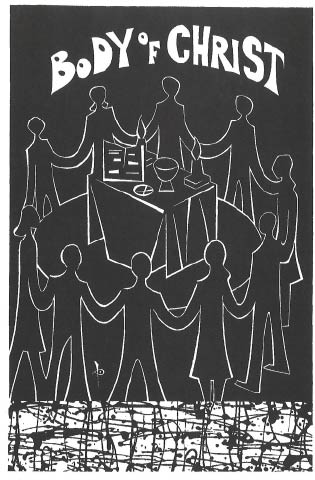Updated April, 2025
When I ask a young person if he or she is interested in making profession of faith, the answer is almost always a variation of “I’m not ready.” When pressed to explain, the young person will often say, “I’m not good enough,” or, “I’m not sure about some things.”
Most teenagers are pretty aware that they don’t do certain things they think they should. They don’t have devotions regularly enough, they don’t attend the evening service every week, they sometimes use bad language at school, or they recognize other sin in their lives. They know their lives don’t measure up to God’s holy standard.
When Jane Vogel and I wrote the course Sunday Morning Live and field-tested it with our high school students, we asked them to read Question and Answer 81 from the Heidelberg Catechism about who should come to the Lord’s table. We asked them if the answer described them. The young people in our class were pretty quick to say that the first part of the answer was accurate because they were “displeased with themselves because of their sins.” They knew about that.
The answer also says that they should come to the table if they know “their sins are pardoned and that their continuing weakness is covered by the suffering and death of Christ.” The very idea that Jesus knew about their continuing weakness and had died to take care of it is a powerful one. There is gospel in that.
The answer concludes that those who should come to the table are those who “desire more and more to strengthen their faith and to lead a better life.” Most of them wanted that. At the end of that session we thought many of them sounded like people who knew what the Lord’s Supper was all about, so we asked, “If you aren’t already participating in the Lord’s Supper, what should you do to make that happen?”

Some walked out of the classroom and into the pastor’s office across the hall and indicated their desire to make profession of faith. However, some focused on the last part of that answer, “Hypocrites and those who are unrepentant, however, eat and drink judgment on themselves.” They still felt as though they weren’t good enough.
These believing young people saw judgment, not love, when they thought about the Lord’s table. They saw their sins and knew they were unworthy. What teenager, even one who loves the Lord, doesn’t see himself as a hypocrite sometimes? What Christian young person doesn’t know that there are sins in her life that she hasn’t repented from?
For some of these kids the Lord’s Supper was more about them and their unworthiness than about Jesus. How come? Part of it is teenage angst and the sure conviction that everything is about them. Coming to the table has to be about them and about their actions.
True faith is about knowledge and assurance. Teenagers, in particular, struggle with a real need for assurance, the kind of divine assurance that Jesus had in mind when he gave his disciples the sacrament in the first place. These young people need the assurance that Jesus’ death was for them, that forgiveness is for them, that God’s love is for them, no matter what.
Children can state in simple terms that Jesus died for them. They can understand that the sacrament is to remind them that God loves them so much that he sent Jesus to die for them. Teenagers know this too, but they sometimes make it more complicated.
What they need is the very thing the Lord’s Supper is supposed to provide, if we believe these words: “As surely as I receive from the hand of him who serves, and taste with my mouth the bread and cup of the Lord, given me as sure signs of Christ’s body and blood, so surely he nourishes and refreshes my soul for eternal life with his crucified body and poured-out blood” (Q&A 75).
A relatively new Christian recently made profession of faith in our church as a high school senior. I asked her about participating in the sacrament for the first time. She said, “After I ate the bread and drank the wine, I felt washed clean from my sin.” Exactly.
What we all need to remember is that the Lord’s Supper is not about us. It’s about Jesus.
Art by Placid Stuckenschneider, from Faith Images 2: Clip Art for the Liturgical Year (© 2000, Sheed and Ward, 7373 South Lovers Lane Road, Franklin, Wisconsin 53132, 1-800-266-5564). Used by permisssion.

